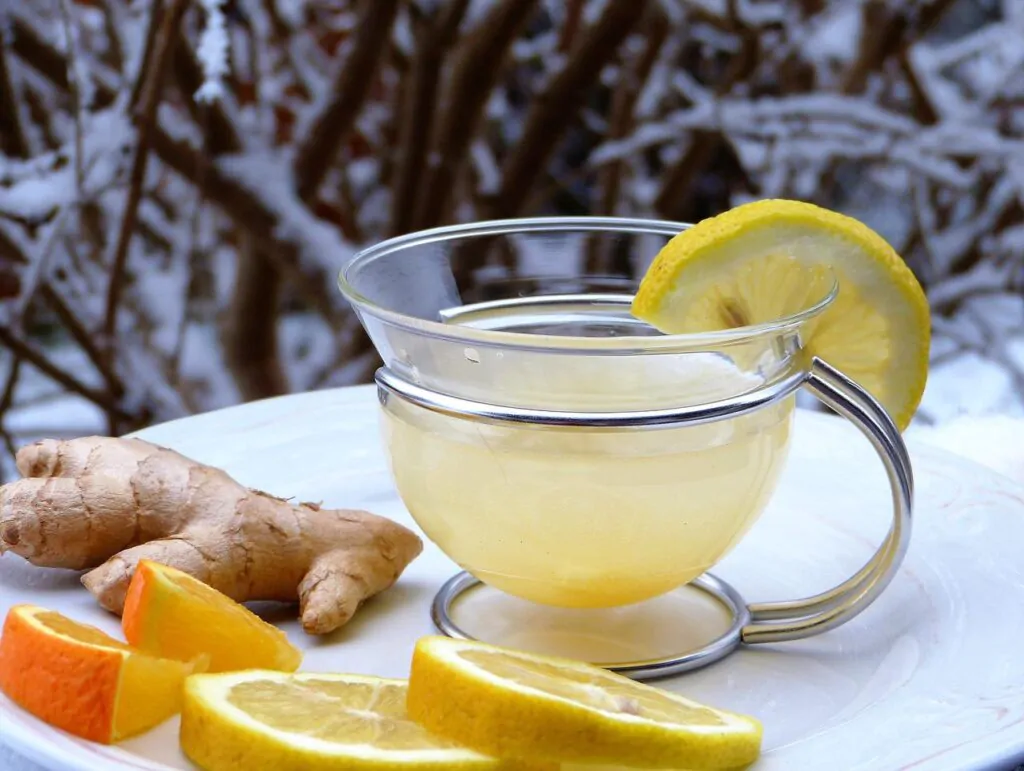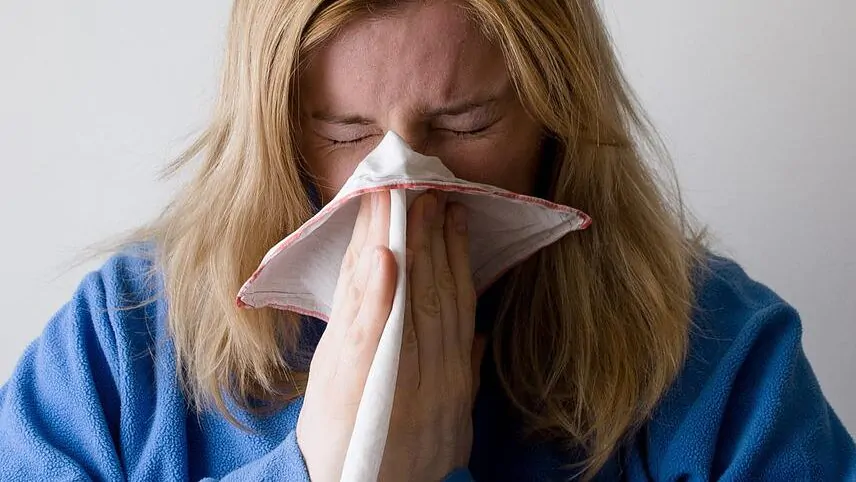Are you wondering is ginger tea good for you, and when is the best time to drink it? Read on to find out.

The ginger tea hype is real. It’s one of the most affordable and effective herbal drinks to soothe nausea, boost immunity, calm upset stomachs, and aid digestion. Despite being known as a tea, ginger tea contains no tea leaves, which means it is caffeine free.
Traditionally, ginger tea has been consumed for centuries, especially in Asian countries. The ginger root itself has a strong spicy and pungent kick. But the good news is that ginger tea is very forgiving on the palate and much milder with a hint of sweetness.
Read on to learn if ginger tea is good for you.
What Is Ginger Tea?
But first, what is ginger tea exactly? Counter to what the name suggests; ginger tea is not an actual tea since it’s not made from tea leaves. Ginger tea is made by steeping a piece of fresh ginger or ground ginger in boiling water for extraction.
Ginger tea is a household name in many Asian countries, where ginger is treated as a medicinal ingredient in both culinary and beverage recipes. History has it that ginger tea dates back to the Tang dynasty in 7th century China.
Nowadays, ginger tea is available in various types and flavors. The most common type of ginger tea you can find in the nearest supermarket or health food store is a ginger tea bag. Other than that, ginger tea also appears as a powder made by drying fresh ginger and grinding it into tiny bits that can be dissolved in water.
What Does Ginger Tea Taste Like?
Despite the common misbelief, the spicy note in ginger tea is very subtle. Instead of being overwhelmingly spicy and tart, ginger tea has a warming and soothing flavor profile without an absence of a brisk, invigorating note. Depending on which type of ginger tea you purchase, it may also introduce a lemony flavor or a hint of sweetness to the palate.
Benefits Of Ginger Tea
1. Nausea Relief
One of the most significant benefits that ginger tea has to offer is its ability to fight nausea. And I realized this insanely cool benefit at a very young age when I was car sick.
Along with ginger chews, ginger ales, or ginger candies, ginger tea is a common and low-cost treatment for motion sickness and nausea. A 2016 study concluded ginger tea to be a safe and effective resort for those dealing with stomach flu or motion sickness in chemotherapy and pregnancy.
2. Helps Treat Colds

You don’t have to wait for motion sickness to enjoy that holy goodness of ginger tea. When it’s pouring down out there, nothing says cozy louder than a hot cup of ginger tea when you curl up in your fluffy blanket looking out of the misty window.
Hot ginger tea will make you feel a lot better on a cold day because it is a diaphoretic that warms your body up inside out. That being said, your digestive health and thermogenesis will also be supported. Plus, there is no nicotine or caffeine in ginger tea at all, making it a perfect afternoon pick-me-up or a relaxing evening sipper.
Side Effects Of Ginger Tea
If you’re good with ginger, you’re good with ginger tea. Since this herbal drink is unlikely to cause many side effects in most people, it’s completely safe to consume within a moderate amount.
Overconsumption of ginger tea happens when you drink more than a recommended amount of four cups per day. In this scenario, the stomach-soothing benefit of ginger tea is likely to go counter-clockwise, causing indigestion, diarrhea, or loose stools.
The second most common side effect of ginger tea is acid reflux. However, it only happens to those people with extreme sensitivity.
The last side effect that was recorded about ginger tea is its ability to slow down the blood clotting process. Those approaching a surgery, experience bleeding disorders, or are taking anticoagulant medications including warfarin or aspirin are advised to steer clear of ginger tea consumption. Consult your doctor before drinking ginger tea.
How Many Types of Ginger Tea Are There?
You can add ginger to any tea, but these are the most common ginger tea variations.
Fresh Ginger Tea
The purest form of ginger tea you can buy at a store is fresh ginger tea. Some of the most common brands offering fresh ginger tea bags include Stash Tea, Traditional Medicinals, Rishi Tea, and Yogi Tea.
This type of tea provides more flexibility. You can add a slice of lemon and a little bit of honey to balance out the fiery flavor up to your liking.
ASIN : B01N22XENH
Turmeric Ginger Tea
Turmeric gives ginger a super boost with its additional anti-inflammatory properties. When blended with ginger tea, turmeric gives it an extra orangey hue plus a spicy kick.
Ginger Green Tea
Last but not least, ginger green tea is my favorite drink. The earthy and mellow flavor is delicious, and when it’s added on top of the fiery ginger, it becomes a superfood that levels up my breakfast.
